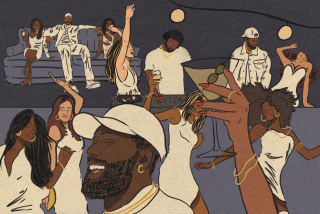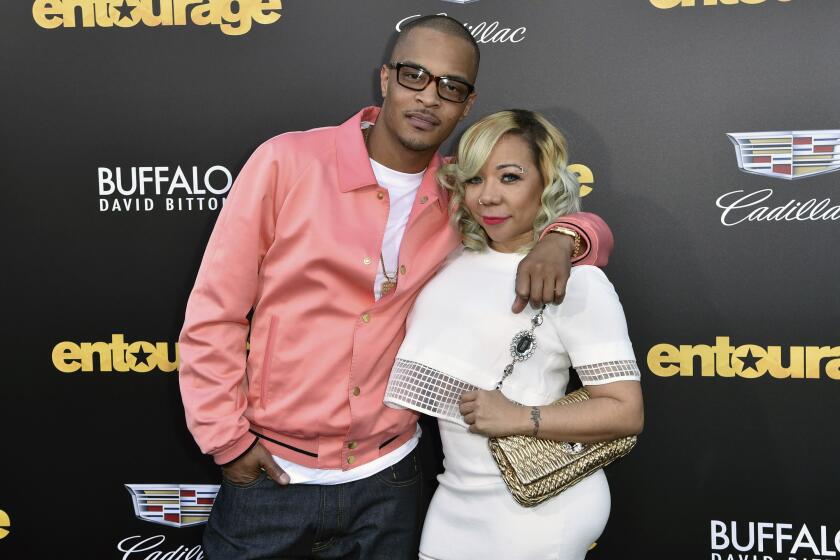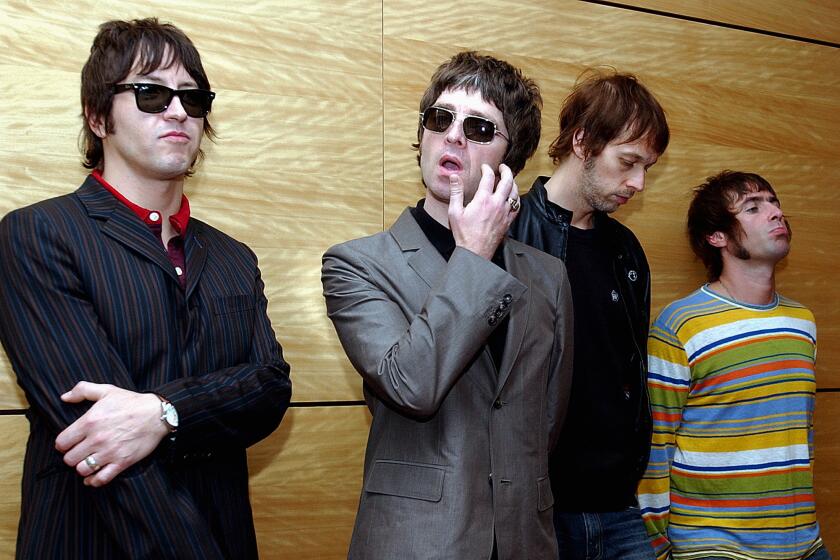Groovy sounds, again
Even considering just the live performances during those celebrated “three days of peace and music” 40 years ago, Woodstock remains a magnificent cultural Rorschach test.
Baby boomers tout it as the pinnacle of unfettered experimentation that characterized the 1960s. Many members of the punk and post-punk generations still sneer at what can come across as the bombastic self-indulgence of the classic-rock era. Post-grunge music fans are demonstrating nouveau nostalgia for the jam-band vibe that flowered on that hot August weekend in upstate New York.
A new six-CD set, the most comprehensive single musical document of Woodstock yet, expands significantly on what’s previously been released officially. There are nearly eight hours of music on “Woodstock: 40 Years On: Back to Yasgur’s Farm,” more than half of the 77 tracks previously unreleased, offering the most informative look yet at the richly varied music created at the festival. Even after everything that’s been said, written, photographed, filmed and recorded on the event, this set shows that a fresh take is still possible.
Perhaps the most valuable aspect is the sequencing: For the first time, performances run chronologically, creating a far stronger sense of the actual event. You feel the momentum building from period-representative but largely forgotten acts such as Sweetwater, Bert Sommer and Quill in the early going toward the truly historic appearances by Janis Joplin; the Who; Crosby, Stills, Nash & Young; and Jimi Hendrix.
The festival’s impressive stylistic variation also comes into full relief, with folk, blues-rooted rock, nascent world music, psychedelia, R&B; and soul, and full-throttle rock. The CD booklet includes each day’s bands and their complete set lists.
Among the highlights of the previously unreleased tracks are two songs by grossly under-appreciated singer-songwriter Tim Hardin, whose own recordings barely dented the charts in the late ‘60s and early ‘70s before he overdosed in 1980 at age 39.
Here he sings the wistful “Hang On to a Dream,” a poignant song about a romantic breakup that seems to anticipate the larger bursting of the utopian bubble that Woodstock once represented. “Simple Song of Freedom” (written by Bobby Darin) was another ideal choice, Dylan-esque in its common-sense plea for social and political understanding amid the upheaval of the day.
Creedence Clearwater Revival was amid what arguably was its creative peak year -- the quartet led by John Fogerty put out three standout albums in 1969. Yet Fogerty long resisted issuing the Woodstock recordings because he felt the band hadn’t been at its best.
Listening to the three Creedence cuts here makes you wish others’ standards were as high as Fogerty’s. It’s also a welcome sonic palette cleanser of potently focused pop-rock coming on the heels of the Grateful Dead’s typically expansive 19-minute run-through of “Dark Star.”
The pro and con of late-’60s music crystallized at Woodstock. Musical experimentation was in full swing, and bands were open to anything that would let them break the shackles of musical conventions they’d grown up with. Time limitations imposed by the once-dominant 45-rpm single and strictures governing what was appropriate for AM radio airplay could be completely tossed aside in live performance.
Hence Canned Heat’s 28-minute “Woodstock Boogie,” which had surfaced before only in abbreviated form. Somewhere near the 20-minute mark it starts to feel like those “three days of peace and music” must have run closer to three weeks.
Is it part of musical history? Absolutely. Is it necessary? Not considering the Woodstock recordings that still haven’t come to light.
The Who, for instance. The quartet had released its watershed rock opera “Tommy” shortly before Woodstock, and played most of it live. Even with this filled-out box set, we still get only “Amazing Journey,” “Pinball Wizard” and a full-length performance of the previously edited “We’re Not Gonna Take It.”
The then-new, multi-part harmonies of Crosby, Stills and Nash (with Neil Young on a couple of numbers) still sounded shaky in spots, but it’s still a shame we don’t hear how Young and his new pals handled Buffalo Springfield’s “Mr. Soul” that day.
Hendrix’s mind-boggling performance ran something like 90 minutes, and we still get just a fraction of it here. Presumably the truly devoted already have the full “Jimi Hendrix: Live at Woodstock” CD released a decade ago.
Likewise, Joplin’s full Woodstock set has surfaced in bootleg form, but there’s reason to lament that we don’t hear more of it here, given her searing performances of “Work Me, Lord” and “Ball and Chain,” both of which were on a 1994 Woodstock box set.
The exceedingly polite and nonjudgmental advisories by emcees Chip Monck and John Morris, on topics such as bad acid and the perils of climbing speaker towers amid a thunderstorm, encapsulate the era’s anything-goes attitude -- toward sex, drugs and especially rock ‘n’ roll.
--
More to Read
The biggest entertainment stories
Get our big stories about Hollywood, film, television, music, arts, culture and more right in your inbox as soon as they publish.
You may occasionally receive promotional content from the Los Angeles Times.










